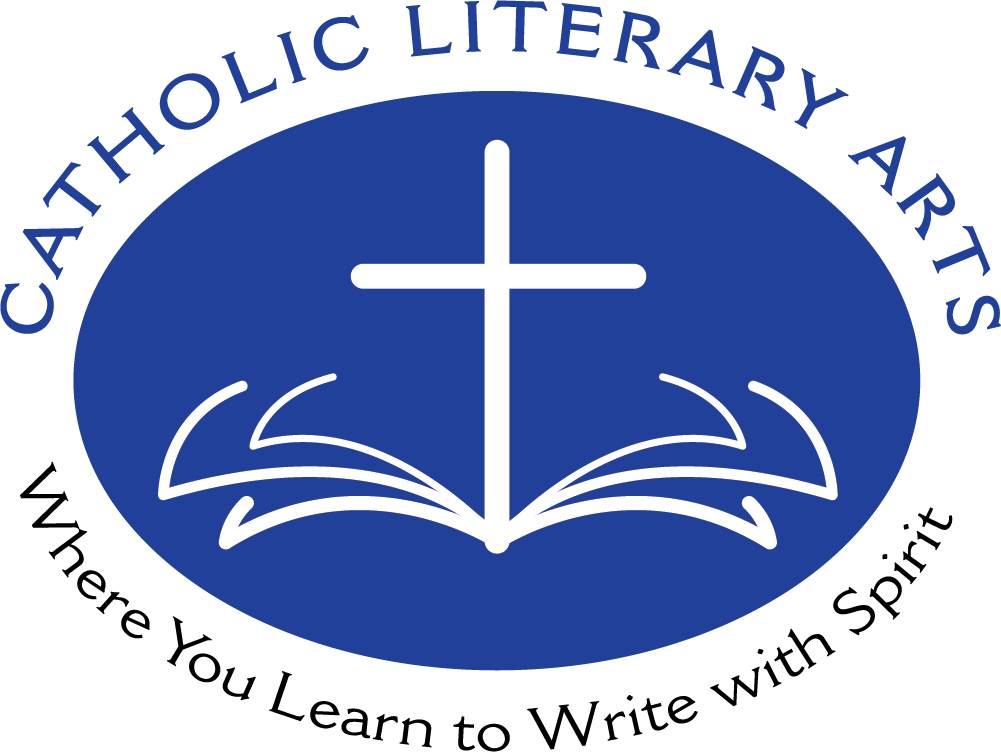
C L A S S E S & E V E N T S
Upcoming Classes
Spring 2025: Virtual Classes and Events
Catholic Literary Arts launches its Spring Semester of Events and Classes.
Ekphrastic Poetry: Writing Poems from Art
Dates: Mondays, January 13, 20, 27, 2025
Paintings and sculptures will be our muses in this generative poetry workshop for writers at all levels. We will explore the many ways of interacting deeply with works of art in writing, and each week will have a new focus. Judith will lead us in close "readings" of a variety of artwork, as well as in discovering the possibilities of varying perspectives. The focus will be on writing poetry as a kind of sacred play. Students who wish to can choose to have their poems shared with the class and receive brief feedback in class from Judith. The feedback will focus on the poems' strengths and possibilities, not on criticism. We will be responding to all new artwork, so those who've worked with Judith before will find new materials in this class.
Biography
Prize-winning poet Judith Sornberger's next book is The Sorority of Stillness: A Gallery of Women in Art --a collection of ekphrastic poems forthcoming from Shanti Arts. Her other full-length books are: Open Heart (Calyx Books), Practicing the World (CavanKerry), I Call to You from Time (Wipf & Stock), and Angel Chimes: Poems of Advent and Christmas (Shanti Arts). Judith has taught poetry writing in many venues, including prisons, colleges, online, and in art galleries and loves to share her passion for poetry and art with other writers. She is a professor emerita of Mansfield University of Pennsylvania and lives on the side of a mountain outside Wellsboro, PA. www.judithsornberger.net.
Come Along for the Ride: Travel Writing at Its Best
Mondays, February 10, 17, 24, 2025
In the personal essay, a flexible and adaptable form, we modulate the tone of our voice to draw our reader close or to let the reader step back. In this course, we will practice using a range of tones in a writer’s voice to explore using the personal essay for travel writing.
Remember that travel writing can document your experiences anywhere you have sojourned: Constantinople, Kathmandu, or Costco.
This class will allow us to explore the expectations of the personal essay and to develop an understanding of how to expand our range of topics using it. We will use a specific and time-proven protocol to respond to the writing of our classmates.
Mary Cecelia Bowman, a fourth generation native Arizonan, is a retired high school English and history teacher who has published poems in The Christian Science Monitor and the Crimson Crane, and human-interest stories in The Arizona Daily Star. She received an MFA from Antioch University, Los Angeles and is a current student in the MFA program at the University of St. Thomas, Houston. You’ll find her travelling and teaching in Italy unless she’s in Arizona.
The Persona Poem: Writing Poems in the Voice of Historic, Mythic, and Fictional Figures
Mondays, March 24, 31, and April 7, 2025
The highly utilized strategy of a voice speaking the poem who is not the poet him or herself has produced poems of great vitality throughout the centuries. In this workshop, you will experiment with temporarily assuming the identity of a person from history, a character from your favorite novel, play, movie, or myth, and then writing a poem in that person’s voice and from his or her perspective.
To prime the pump we will read and discuss a few exemplar persona poems as a group and engage in in-class writing exercises.
So whether you are stuck in a writing rut or just plain want to have some fun, come join us for this interactive three-part generative poetry workshop where we will try on being someone else to explore the art of the persona poem.
NOTE: In-class exercises and the homework are designed to accommodate all levels of experience in writing poetry.
Tamara Nichol-Smith’s poetry has appeared on two Albuquerque city bus panels, one parking meter, numerous radio shows, a spoken-word classical piano fusion CD, and in several publications, including The Examined Life Journal, Catholic Arts Today and America. Her poem on Saint Jerome is part of the display of the Guttenberg Bible installed at the University of Saint Thomas. Tamara is a member of Catholic Literary Arts and a contributor to the “Joy of Catholic Poetry” and “Resurrection Joy” presentations done at parishes, schools, and universities. She is the coordinator of the annual Sacred Poetry Contest.
Spiritual Journaling: Open the Heart with Sacred Art
Dates: March 25-30, 2025
Location: St. Edmund’s Sacred Arts Institute, Mystic, CT
Beautiful images have a unique ability to incite our imaginations and open our hearts to the wonder of God’s creative glory. Sacred art, especially, has the power to draw us closer to God. Join us at this five-day retreat and writing class to learn an approach to spiritual journaling centered on the contemplation of sacred art. Inspired by the time-honored practices of Ignatian spirituality, we will build bridges through our own writing to the Holy Trinity and the saints. Our class resources will be images of sacred art, individual prayer time, written examples from saints and other Catholic writers, and thoughtful conversation about examples of the rich devotional literature of Catholicism. I encourage you to plan a day with about 3 1/2 hrs. class time, then unstructured time to pray, nap, write, stroll the beautiful grounds.
Sarah Cortez, writer and editor, has taught creative writing in first-grade classrooms, juvenile detention centers, book festivals, police departments, universities, high schools, and corporate boardrooms. She is a member of the Texas Institute of Letters and Fellow of the Dallas Institute of Humanities and Culture. Her poems, essays, book reviews, and short stories are anthologized and published in journals, such as Southwestern American Literature, Presence: A Journal of Catholic Poetry. Recently anthologized in The Saint Mary’s Book of Christian Verse, she is a contributing editor for Catholic Arts Today, and arts columnist for St. Austin Review, she writes for National Catholic Register and Texas Catholic Herald. She is a developmental editor for several publishers, and is founder and president of Catholic Literary Arts, a national community of faith-filled educators and writers dedicated to furthering creative writing skills.




